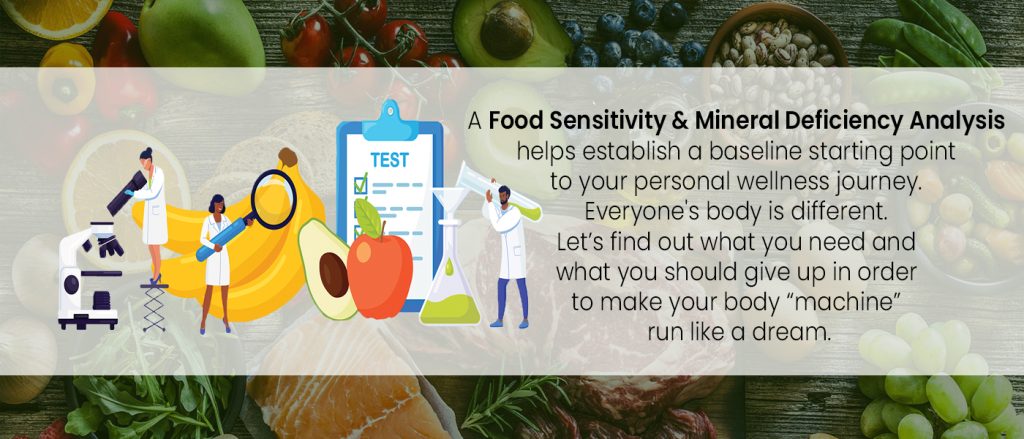Your cart is currently empty!
Acid vs Alkaline: The Impact of Food Choices on Your Body
I. Introduction
- Explanation of the Alkaline vs Acid concept
- The importance of pH balance in the body
- The impact of food choices on pH levels
II. The Acidic Diet
- Definition and principles of the Acidic Diet
- Foods that make the body more acidic
- Negative effects of an overly acidic diet
III. The Alkaline Diet
- Definition and principles of the Alkaline Diet
- Foods that make the body more alkaline
- Benefits of an alkaline diet for optimal health
IV. Alkaline vs Acidic: The Impact on the Body
- How pH levels impact the body’s functions
- The importance of maintaining a balanced pH level
V. Incorporating the Alkaline Diet into Your Lifestyle
- Tips for transitioning to an alkaline diet
- Sample meal plan and recipes
VI. Conclusion
- Recap of the benefits of an alkaline diet
- Final thoughts on the importance of pH balance in the body
Acid vs Alkaline: The Impact of Food Choices on Your Body
In today’s health-conscious society, the impact of diet on our well-being is a topic of great interest. One aspect that has gained attention is the acid vs alkaline concept and its influence on the body’s pH balance. This article explores the effects of food choices on pH levels and the importance of maintaining a balanced internal environment.

I. Introduction
Explanation of the Alkaline vs Acid concept
The alkaline vs acid concept is based on the pH scale, which measures the acidity or alkalinity of substances. The pH scale ranges from 0 to 14, with 7 being considered neutral. A pH value below 7 is acidic, while a pH value above 7 is alkaline. The human body has different pH levels in various parts, but an overall slightly alkaline pH is believed to promote optimal health.
The importance of pH balance in the body
Maintaining the body’s pH balance is crucial for its proper functioning. The body tightly regulates pH levels, as even a slight imbalance can disrupt cellular activities and bodily processes. Deviations from the ideal pH range can lead to health issues and impact vital functions such as digestion, metabolism, and immune system functioning.
The impact of food choices on pH levels
The food we consume has a direct influence on our body’s pH levels. Certain foods can either promote an acidic or alkaline environment once metabolized. The Acid vs Alkaline Diet explores the idea that consuming too many acid-forming foods can disrupt the body’s pH balance, leading to potential health problems. Conversely, an alkaline diet aims to balance pH levels by emphasizing alkaline-assisting foods.
II. The Acidic Diet
Definition and principles of the Acidic Diet
The Acidic Diet, also known as the acid ash diet or acid-forming diet, is characterized by the consumption of foods that generate acid when metabolized. These foods are typically high in protein, such as meat, dairy products, processed grains, and certain types of nuts. The diet focuses on acid-forming foods while limiting alkaline-forming foods.
Foods that make the body more acidic
Several food groups are considered acid-forming when metabolized. These include red meat, poultry, seafood, dairy products, processed grains, refined sugars, caffeine, and alcohol. While some of these foods can be part of a balanced diet, excessive consumption can lead to increased acidity in the body.
Negative effects of an overly acidic diet
An overly acidic diet can have various negative effects on the body. It may contribute to inflammation, reduced bone density, muscle wasting, impaired digestion, and increased vulnerability to certain diseases. Additionally, excessive acidity can strain the body’s natural buffering systems, which work to maintain pH balance.

III. The Alkaline Diet
Definition and principles of the Alkaline Diet
The Alkaline Diet focuses on consuming foods that have an alkalizing effect on the body when metabolized. These foods primarily include fruits, vegetables, legumes, nuts, and seeds. The diet aims to maintain or restore the body’s natural pH balance by reducing the consumption of acid-forming foods and emphasizing alkaline-forming ones.
Foods that make the body more alkaline
Alkaline-forming foods are typically plant-based and include leafy greens, vegetables, citrus fruits, berries, walnuts, chickpeas, and quinoa. These foods are rich in essential nutrients, antioxidants, and fiber, offering numerous health benefits beyond their impact on pH levels.
Benefits of an alkaline diet for optimal health
Advocates of the Alkaline Diet claim that maintaining an alkaline state in the body can provide various health benefits. These potential benefits include improved digestion, increased energy levels, reduced inflammation, enhanced immune function, and support for weight management. However, it’s important to note that scientific evidence supporting these specific claims is limited.

IV. Alkaline vs Acidic: The Impact on the Body
How pH levels impact the body’s functions
pH levels play a vital role in the body’s functions. Enzymatic reactions, cellular communication, and metabolic processes all require specific pH environments to operate optimally. For example, enzymes involved in digestion have specific pH requirements, and deviations from these optimal pH levels can affect their efficiency.
The importance of maintaining a balanced pH level
Maintaining a balanced pH level is crucial for overall health and well-being. While the body has natural buffering systems to regulate pH, excessive acidity or alkalinity can strain these mechanisms. Imbalances may lead to health issues such as acid reflux, osteoporosis, kidney stones, and compromised immune function. Adopting a balanced and nutritious diet can contribute to maintaining an optimal pH balance.

V. Incorporating the Alkaline Diet into Your Lifestyle
Tips for transitioning to an alkaline diet
Transitioning to an alkaline diet can be a gradual process. Start by incorporating more alkaline-forming foods into your meals, such as leafy greens, fruits, and vegetables. Experiment with alkaline recipes and gradually reduce the consumption of acid-forming foods. It’s essential to focus on overall balance and moderation, ensuring you meet your nutritional needs.
Sample meal plan and recipes
Here’s a sample meal plan to give you an idea of how you can structure your meals on an alkaline diet:
- Breakfast: Green smoothie with spinach, kale, banana, and almond milk.
- Snack: Sliced cucumbers with hummus. (my wife’s favorite)
- Lunch: Quinoa salad with mixed vegetables and avocado dressing.
- Snack: Walnuts and a piece of fruit.
- Dinner: Baked stuffed zucchini with roasted vegetables and fonio.
- Dessert: Mixed berries with a dollop of coconut yogurt.
Remember to personalize your meal plan based on your preferences and dietary needs.
VI. Conclusion
In conclusion, the Acid vs Alkaline concept highlights the impact of food choices on the body’s pH balance. While the scientific evidence supporting specific claims of the Alkaline Diet is limited, it promotes the consumption of nutrient-dense, whole foods. Whether you choose
to follow an acidic or alkaline diet, maintaining a balanced pH level is essential for overall health. Prioritize a well-rounded diet, including a variety of fruits, vegetables, whole grains, and lean proteins, while avoiding excessive consumption of highly processed foods.
FAQs (Frequently Asked Questions)
- Is it necessary to completely eliminate acidic foods from my diet?
It is not necessary to eliminate acidic foods entirely. The key is to achieve a balance between acid-forming and alkaline-forming foods. Moderation and variety in your diet are important. - Can the Alkaline Diet cure diseases?
The Alkaline Diet is not a cure for diseases. It is a dietary approach that focuses on promoting a balanced pH level in the body, but its direct effects on disease prevention or treatment are not well-established. - Are there any risks associated with the Alkaline Diet?
The Alkaline Diet, when followed in a balanced manner, is generally considered safe. However, if taken to extremes, it may lead to nutritional deficiencies or imbalances. It is advisable to consult a healthcare professional or registered dietitian before making significant dietary changes. - Can I test my body’s pH level at home?
Testing your body’s pH level at home using commercially available pH strips may not provide an accurate representation of your overall internal pH. The body’s pH is tightly regulated, and the results from such tests may not be reliable indicators of your overall health status. - Is the Alkaline Diet suitable for everyone?
The Alkaline Diet can be a healthy dietary choice for many individuals. However, certain medical conditions and individual factors may require modifications or personalized approaches to diet. It is best to consult with a healthcare professional to determine the most appropriate dietary plan for your specific needs.
Get Access Now: https://alkalineeclecticherbs.com/
Suggested Alkaline Articles
Beyond Vegan: Discovering the Benefits of an Alkaline Diet
The Alkaline Diet: Going Beyond Vegan for Optimal Health
How to Incorporate Alkaline Recipes in Your Diet for Better Health

